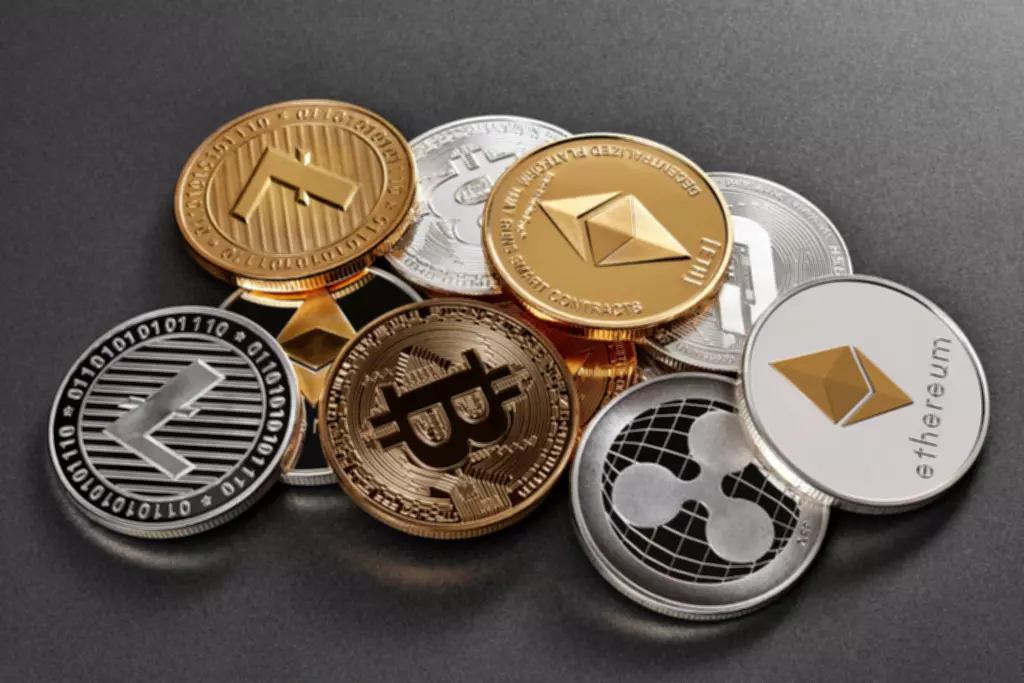Содержание
For instance, as of May 2021, Ethereum handles 30 transactions per second. Card giants such as Visa handle around 1,700 transactions per second . To get on a CEX, an asset needs to satisfy security protocols, have trading activity, and comply with legal standards. In a DEX, you hold your assets instead of entrusting them to a third party like a bank.
The centralized exchange has a lot of features for trading while the decentralized exchange has very limited options. Centralized exchanges preserve a KYC database along with the software used to ensure the trades are seamless and without loopholes. Centralized exchange handles authorized currency forms in trading making it safer and more secure than decentralized exchanges. Given the fact that centralized cryptocurrency https://xcritical.com/ exchanges are being managed by one central body, they are vulnerable to breakdowns, e.g. caused by hacker attacks. Therefore, a very important issue here is the level of trust that a given exchange gives to users – i.e., security and transparency. Centralized exchanges are quite frequently the target of hacker attacks, as the infamous examples of Bitmart, Mt. Gox, and several hacks by the Lazarus Group show.

They can be built on top of several blockchains and are not limited to a specific coin’s ecosystem. This “modern” setup brings about secure order matching, transparent handling of order books, and decentralized asset exchange. Also consider the initial distribution of proof-of-stake tokens in private sales. Proof-of-stake blockchains determine who can add blocks to the chain based on the number of tokens they hold. The sale of tokens to venture capital firms or other inside investors before the public can purchase them can create unfair advantages for these early investors.
Dex Aggregators
This – that decentralized exchanges are more in line with Satoshi Nakamoto’s and the anarcho-capitalist’s vision of a trustless peer-to-peer system – has fuelled the growth of decentralized exchanges. This is actually the main difference between a centralized exchange and a decentralized exchange. People do argue however about whether it’s an advantage or a disadvantage. But on the other hand, it also brings a higher risk of you losing your assets you have stored with the exchange.

There is no clear winner between centralized and decentralized exchanges. One is not better than the other, but some traders may prefer a CEX to a DEX and vice versa. Many crypto traders use both, as certain tokens can only be found on DEXes and CEXes provide entry and exit points to cryptocurrencies and the regular financial system.
To take good care of your financial life, you need to know how to make smart financial decisions. We are here to provide you with the information you need to make intelligent financial decisions. We write articles on a wide range of topics, from working with a financial advisor to what type of loan programs you can use to minimize your down payment on a new home.
How To Buy Bitcoins With Cash
Since decentralized exchanges list tokens without auditing them, token holders and liquidity providers may experience sudden losses if a lot of liquidity is removed from a trading pair. But a decentralized exchange like Paradex outsources the actual payment and fulfillment of a trade to the ethereum blockchain, which is the decentralized bit. Customers of a decentralized exchange never actually send their funds to the exchange to be traded, which is the case with traditional crypto exchange. This is “on-chain” settlement, in the language of the crypto world. So DEx customers hold their own funds in their own wallets, and only move the funds out when the trade is settled.
This is almost 50% lower than the average taker fees for centralized exchanges. Decentralized exchanges are popping up like mushrooms in the cryptocurrency world. But centralized exchanges still has an iron grip on the majority of all cryptocurrency traders. This blog post on Centralized Exchanges vs Decentralized Exchanges sorts out a few advantages and disadvantages with both types.
After all, having an e-wallet, just like in the case of a centralised exchange platform, increases risks. Centralised exchanges bear the additional cost of setting up and maintaining infrastructure to offer secured services. Whereas, decentralised crypto exchanges work on the principles of automation and self-regulation that make them cheaper comparatively. For all of its advantages, trading on a DEX means watching your own back at all times. A trading platform without a know your customer process can offer no assistance if a user is hacked or cheated out of passwords, currency or private wallet keys. The user controls their own private keys when making trades, so there is practically zero risk of a large-scale security breach that would lead to loss of funds.
The exchange facilitates your trades; however, you deal directly with the seller or buyer to complete the transaction. You have to set up your own wallet storage system if you use this kind of platform. Which were one of the first initiatives in the development of decentralized exchanges.
- It also means that they’re responsible for learning and getting acquainted with the technologies that they’re handling.
- (IOTA is routinely in the top 75.) Because the number of users affects the amount of decentralization, the most decentralized cryptocurrency will always be in flux.
- Carlos Cano is D-CORE’s Creative Lead and host of the Blockchain People podcast on D-CORE’s platforms.
- Customers of a decentralized exchange never actually send their funds to the exchange to be traded, which is the case with traditional crypto exchange.
- Of these choices, Tezos has the largest market cap, standing at over $2.5 billion.
- Validator count and distribution become more important when founding teams still have a large influence on upgrades.
The platform uses Tor routing to decentralize operations, most importantly matching buyers and sellers. Its open source framework helps to ensure that no one person can be held accountable for regulatory violations in any jurisdiction. For the privilege of anonymity, you will pay around a 2% trading fee.
Advantages Of Centralized Cryptocurrency
0x traders may exchange ERC20 tokens without giving out any personal information, a feature that is rare for U.S.-based exchanges. To find out more about both options, check out a few cryptocurrency exchange providers to see how they work. Nandini Sukumar is the Chief Executive Officer of the World Federation of Exchanges, the global association for exchanges and CCPs.
Komodo’s AtomicDEX, as one example, is compatible with 99% of cryptocurrencies in existence. AtomicDEX uses atomic swaps to enable traders to make swaps cross-chain and peer-to-peer. Dozens of blockchain protocols are already supported, including Bitcoin, Ethereum, Litecoin, and Komodo. With their liquidity solutions, smart contracts actually take over the process of the trade.

CEXes are regulated and have to comply with KYC and AML standards to prevent money laundering and financing terrorist groups. Some centralized exchanges apply only lax KYC, but completely KYC-less centralized exchanges pretty much do not exist anymore. But if you’re trading bitcoin and other crypto assets, you’re thinking more of making money today or tomorrow than what will happen in 10 years. While a centralized exchange is more user-friendly and theoretically safer, a decentralized exchange is a new technology that will likely become the standard in the future.
Stock Market Vs Crypto Market: Everything You Need To Know
The way decentralized exchanges work, being an open market, allows for users to trade existing cryptocurrencies permissionlessly, adding new crypto assets on the fly. Most decentralized exchanges support a variety of third-party crypto wallets. When trading on most DEXs, users connect a wallet to a trading platform and then approve blockchain transactions. Some DEXs such as Komodo’s AtomicDEX, have built-in non-custodial wallets. Unlike centralized exchange wallets, decentralized exchange wallets are non-custodial.

With a true decentralized exchange , your funds are always in your custody, thus eliminating the security issues that plague centralized exchanges. This means your funds are in your control and remain much more secure. Real decentralized exchanges must also be permissionless because, if a DEX requires users to receive permission, then there must some centralized entity controlling it. Users of decentralized exchanges must be the sole holders of their keys and passwords to their crypto wallets. It also means that they’re responsible for learning and getting acquainted with the technologies that they’re handling.
Digital Asset Summit 2022
The future of funding is happening now — choose wisely where you put your money. The 0x protocol is one of the more accessible and popular frameworks for creating a decentralized exchange. To use this protocol, you will need to download node.js, Yarn, Docker and npx. Parts of a DEX can be centralized, and some exchange operators choose to maintain centralized control over some components of their platforms. For instance, Bancor froze all funds after being hacked for $13.5 million in assets.
PNP Coin – A Decentralized Crypto with a centralized ideology – Digital Journal
PNP Coin – A Decentralized Crypto with a centralized ideology.
Posted: Thu, 29 Sep 2022 06:55:37 GMT [source]
The decentralization of proof-of-stake blockchains can be measured by the percentage of a coins circulating supply that is staked to the network and how many entities that stake is divided amongst. Let’s explore the difference between Centralized and Decentralized Crypto Exchanges. Cryptocurrency transaction benefits the shareholders to buy, sell and exchange cryptocurrencies at a rapid phase. The problem wth CEXes are that users give up custody of their crypto and these exchanges are more vulnerable to hacks.
In contrast, if you manage to get into a server at a centralized exchange, you can do a lot more harm. Let’s say you deposit fiat currencies (meaning “non-crypto money”) to a centralized exchange, USD 1,000. Before you use those dollars to purchase anything, the exchange stores it for you. And when you have bought Bitcoin or another cryptocurrency for the dollars, the exchange stores such cryptocurrency for you until you transfer it out from the exchange.
Risks
Even though you often read that DEXes are cheaper than CEXes, that is not entirely accurate. Decentralized exchanges may have lower maker and taker fees for individual trades but settling the trades on-chain often results in higher total costs than on a centralized exchange. On a DEX, you as the user retain custody of your private key and thus your cryptocurrency.
In other words, a CEX works similar to a bank, which is why hardcore crypto believers swear by the manifesto not your keys, not your coins. CoinMarketCap Alexandria explains the difference between centralized and decentralized exchanges — and who should use which one. Having said all this, decentralised exchange comes with its set of disadvantages as well including that it doesn’t initiate the trade of fiat currencies.
IDEX does maintain more centralization to offer these advantages, most importantly order execution. The company imposed stricter KYC requirements in August 2019 as a result of the SEC-EtherDelta debacle mentioned above. However, fees are lower on IDEX than centralized cryptocurrency on truly decentralized exchanges, totaling around 0.3% of a trade. Decentralized exchanges are often mistaken for decentralized currency. Centralized currencies can be traded on decentralized exchanges and vice versa, barring regulatory blockages.
The idea behind bitcoin was to create a global monetary network, run by and for the people, with no restrictions. One of the major drawbacks of decentralized exchanges is the failure to reach liquidity levels when compared with centralized exchanges. Decentralized exchange is an alternative to the centralized exchange where no single unit controls the assets.
Decentralized exchanges are also highly scalable to minimal barriers to entry as well as favorable trading terms. This enables these exchanges to undergo massive growths in relatively short time spans. The viability of decentralization certainly provides humanity with options concerning its collective financial future. As it stands, we are now in a tug-of-war between central banking and decentralized finances.



